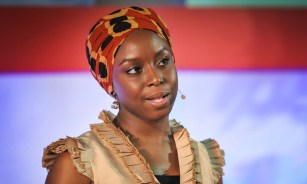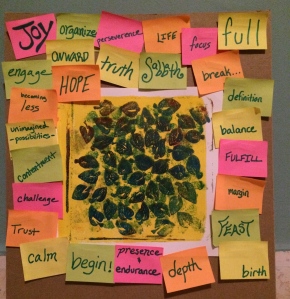Skip school. Don’t help with housework. Return anger with a higher degree of rage. Use coarse language. Objectify. Disrespect public property.
Expectations for local teenage boys, in many peoples’ minds, do not rise much higher than this.
And those who challenge expectations face consequences. So when fifty teenagers piled into the community center, for the first day of our Young Leaders’ “Winter” Camp, their presence defied stereotypes.
They were not taking a break during school holidays, with their peers. They were sitting shoulder to shoulder, cross-legged on carpet squares, listening carefully as the program director explained the week’s themes: Understand your identity. Understand the truth. Understand what it means to be a leader.
They watched clips from a speech by the highly-respected ruler of this nation; he called on youth to become authentic and clear-sighted leaders. They listened to a story about an eagle who was raised as a chicken: born to ride the wind instead of scratch the soil, but limited by the assumptions she had internalized. And throughout that hour, they seemed to forget that only a thin square of fabric separated them from the cold concrete floor.
They were locked in to every word that was said.
 Two weeks ago, I sat along the beach, wondering what I was called to and searching for one word to lock in to for the next twelve months…. Something to shape my approach to work, friendships, family, faith, and everything else. No big deal, right?
Two weeks ago, I sat along the beach, wondering what I was called to and searching for one word to lock in to for the next twelve months…. Something to shape my approach to work, friendships, family, faith, and everything else. No big deal, right?
One word. But as the sun was setting, I still had thousands of words tumbling in my mind. Fragments of dreams, run-on sentences of determinations, each lofty but seemingly empty. I had already tried hard, in the past year, to become all of those things. I had landed far short of my goals. Why should I expect my story to be different this year?
The students, when they finish their Winter Camp, will have heard writer Chimamanda Ngozi Adichie’s TEDTalk The Danger of a Single Story. She tells of growing up in middle-class Nigeria, on a university campus. Later, in the United States, she discovered that many people had a single story of Africa: one of “senseless war,” poverty, and rampaging diseases.
When she– or her novels– did not fit into those categories, she faced others’ disappointment.

She admits that, at times, she too has believed in “single stories.” After seeing much Western media coverage on desperate immigrants from Mexico, who risked the breath in their bodies to achieve American soil, Adichie was shocked to travel south of the border and see contented souls, living out daily routines.
And, she says, she was ashamed. She had bought into the media’s tale, as if it were the defining narrative for all Mexicans. “That is how to create a single story,” she realized. “Show a people as one thing, and only one thing, over and over again, and that is what they become.”
During the camp the Young Leaders will choose a way to express their condolences, to youth in a similar leadership program, in a city where 136 students and 13 adults recently lost their lives. They know that many people around the world associate the majority faith here with violence, although they themselves are grieved and horrified by the events in Peshwar… and now also in Paris. Adiche’s words resound in the context of these tragedies: “The single story creates stereotypes, and the problem with stereotypes is not that they are untrue, but that they are incomplete. They make one story become the only story.”
These teenagers face the single story of assumptions from outside their culture, expectations within their neighborhoods– and the limitations they put on themselves. Will others’ opinions, or their own past failures, define their futures? Will they internalize false presuppositions, like the story of the eagle who thought she was a chicken?
Or will they figure out who they really were made to be?
Stories soar in the context of relationships. Sitting by the sea, searching for the right word, I saw that I had limited my hopes for 2015 to what – I – was capable of making happen. Alone.

So I chose a word that is primarily relational. It depends more on the Author of the story than on anyone else, and it feels like a risk. If you gave me a word, and I gave you mine, know that I will remember you this year — we’re in this story together. And if not, but you want in, comment with your word below :-).
Me. You. The teenagers in the leadership program .
Will we tell a second story?